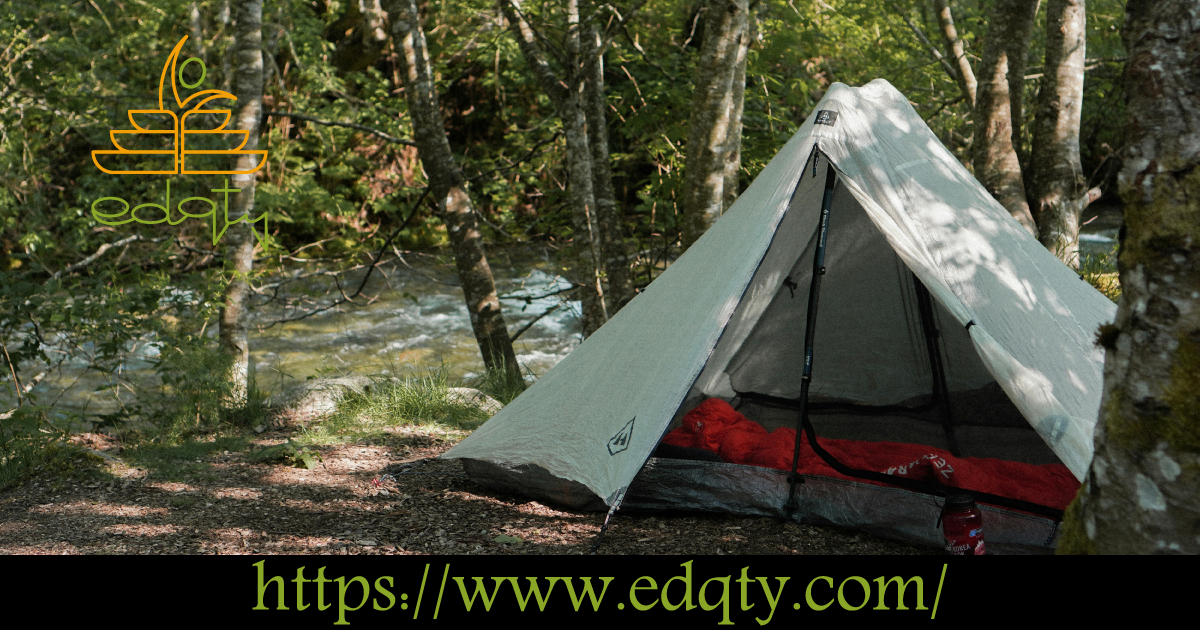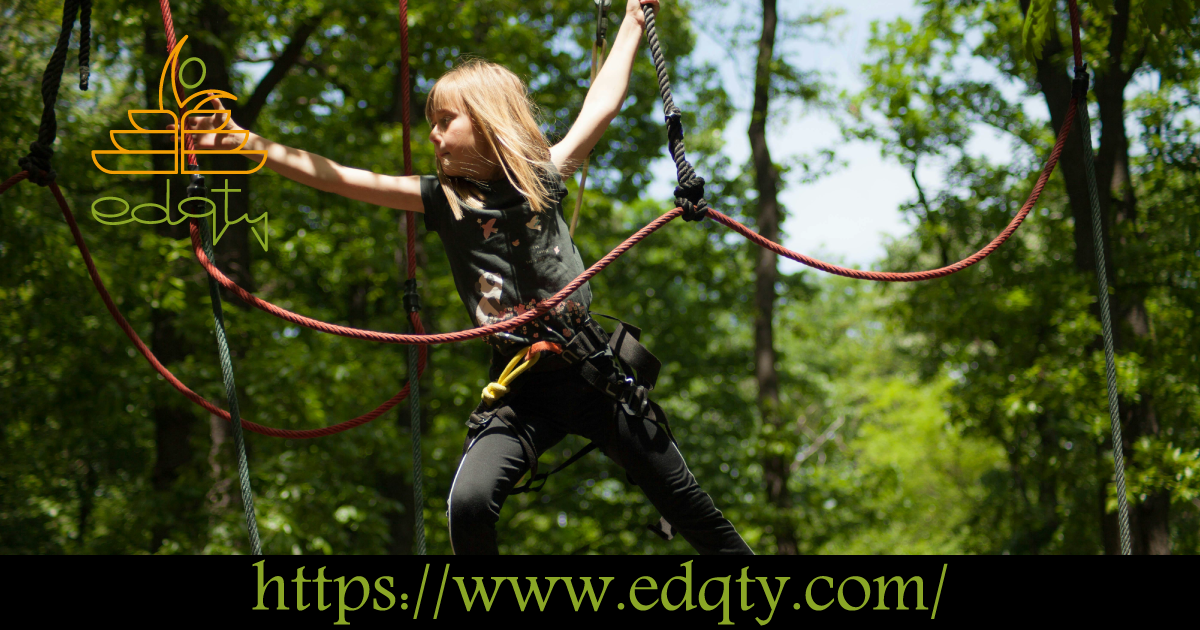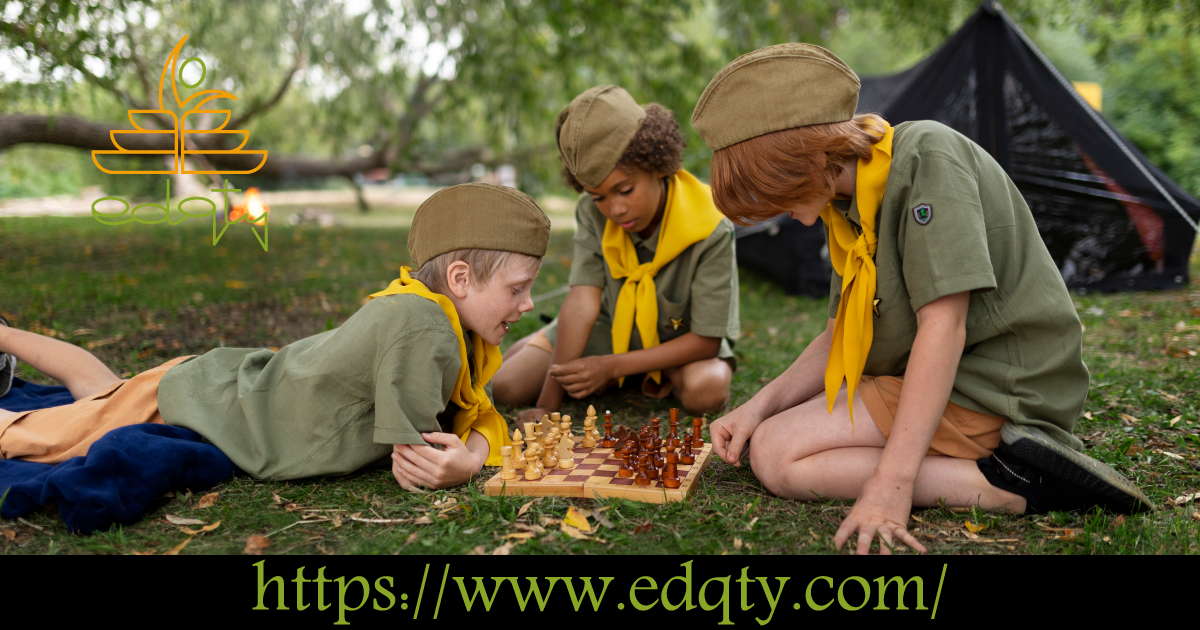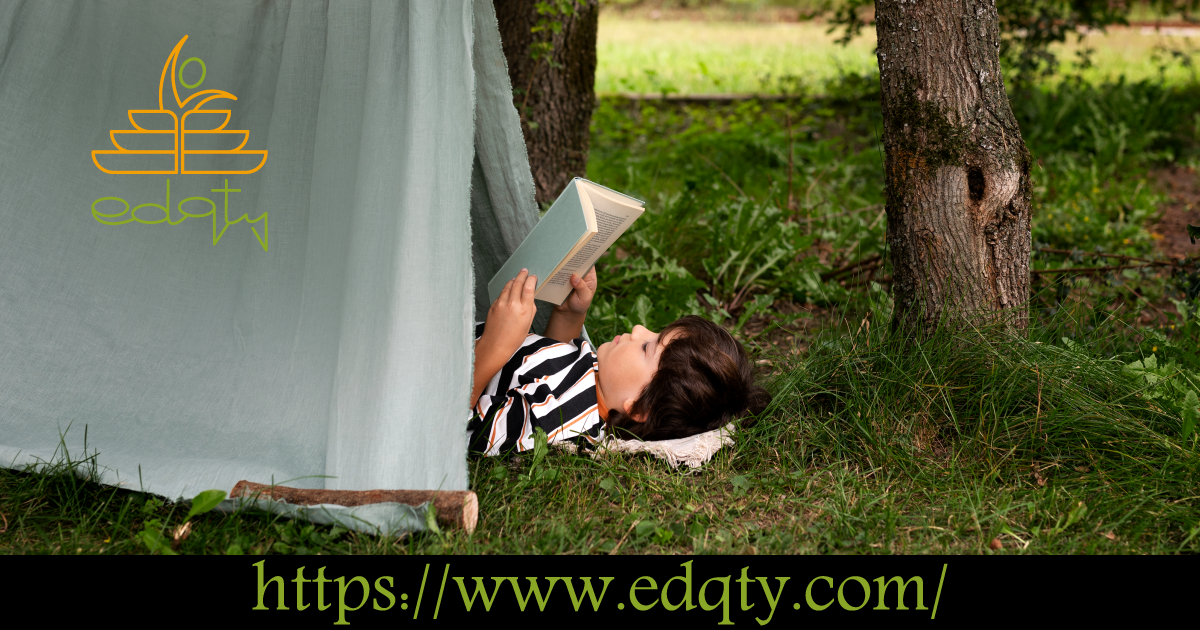Introduction: Benefits of School Camps
Today, school camps are indeed a part of education and can even make learning a hands-on experience rather than just learning in a typical classroom. These expeditions give a collaborative environment where students can go outside, face new experiences, and reap the many benefits of school camps by learning those skills they will absolutely need in life. Stepping out of familiar routines helps them develop a broader view of the world and build up more self-confidence. School camps expose the young to real-life scenarios, which enables them to appreciate diverse perspectives. In shared tasks and team-based activities, they cultivate mutual respect and empathy, leading to independence and resilience in their future endeavors.
Such experiences can help motivate students to grow personally by learning how to pack, arrange schedules, and manage resources during a short time away from home. They learn to be disciplined and responsible for their belongings while experiencing memorable moments with friends. In addition, they experience varied environmental conditions, wherein they must solve problems and tackle challenges under pressure. These experiences build strong foundations and boost their confidence and self-esteem. The outdoor camps encourage learners to introspect and realize their strengths and weaknesses. Altogether, this prepares students for a lifelong journey of curiosity, empathy, and a positive attitude toward future experiences.
This blog highlights the importance of school camps in developing independence and resilience in students, underlining the reasons why they are necessary in their lives and for personal growth.
1. Fostering Independence Through Practical Experiences

One of the most significant benefits of school camps is the way they strengthen independence among students. When away from home, they are often responsible for tasks like tidying their sleeping areas, managing personal belongings, and making practical decisions about daily routines. These actions might appear small, yet they contribute greatly to forming a sense of self-sufficiency. This setting removes the usual safety nets and nudges young people to trust their own abilities. Over time, they realize they can handle minor obstacles independently, such as finding a misplaced water bottle or preparing their gear. Becoming more independent naturally makes them feel more confident.
The Role of Self-Sufficiency in Personal Growth
By practicing independence in a supportive place, students build a stronger outlook for the years ahead. They learn that self-reliance and responsibility are not just nice ideals but vital tools for adulthood. These attributes help them navigate higher education, career challenges, and personal goals. In essence, each step toward managing their own needs at camp instills a mindset that values resourcefulness, adaptability, and continuous learning.
2. Overcoming Challenges and Building Resilience

School camps have exciting things like ropes courses, night treks, and even rock climbing. These might be a challenge for any student to push their comfort limits. Facing heights, dark, or unexplored territories may seem daunting at first, but such moments make them grow. Each experience requires them to solve problems, face discomfort head-on, and rely on teamwork when faced with something too overwhelming for them to do. By working through these fears, students gradually build resilience, a vital quality that empowers them to keep going in tough times. The sense of triumph that follows fosters a can-do attitude they can carry into academic pursuits and everyday life.
Preparation, Support, and the Path to Confidence
Preparation and optimism are key when students are faced with challenging circumstances. Competent teachers typically provide step-by-step guidance, which help ensure a straightforward way to triumph. Support from friends contributes to high morale and cooperation. Communication allows students to share their concerns, ideas for solving problems, and encouragement to each other. This approach forms a positive way of problem-solving and fosters self-confidence.
3. Enhancing Critical Thinking and Decision-Making Skills

At school camps, young people are often called upon to think on their feet, make difficult decisions, and complete real-world tasks without constant supervision. Whether they are mapping an orienteering route or deciding how to split resources for group meals, they must evaluate risks and potential outcomes. This active participation sharpens critical thinking and encourages them to weigh multiple perspectives. Applying trial-and-error strategies, they learn to adjust when results are not the same as expected. Eventually, these actions refine their decision-making skills, and consequently, they make better choices. The habit of analyzing a situation and taking ownership of decisions helps them far beyond camp settings.
Applying Problem-Solving Skills to Real-World Scenarios
The problem-solving and decision-making skills gained at school camps carry over to academic projects, future careers, and everyday life. Students who have practiced group tasks outdoors are better equipped to take on the challenges in the classroom. They learn that sometimes perseverance breeds fruit. In experiencing both success and failure, they gain an appreciation for the fact that each decision, however poor, holds lessons that can be learned.
4. Strengthening Social Skills and Teamwork

Among the various benefits of school camps, one of the most important is the opportunity for students to deepen friendships and sharpen social skills. Away from familiar classroom routines, they interact more spontaneously and learn from shared experiences. Group tasks, such as cooking meals together or setting up a campsite, encourage open conversation and mutual support. In such settings, active listening is of prime importance in planning and managing activities as well as addressing unexpected setbacks. Consequently, participants learn to appreciate the value of different viewpoints and appreciate each other’s unique strengths. This heightened awareness of teamwork and empathy paves the way for positive relationships that often continue after camp ends.
Fostering Empathy and Mutual Respect in Group Activities
Once students realize that they all depend on each other to reach a goal, they begin to look beyond their individual success. They offer praise for good ideas, share resources, and learn from one another’s insights. These collective efforts reinforce cooperation, making problem-solving smoother. By stepping into each other’s shoes, they develop compassion and a supportive mindset. These social habits help build harmonious communities and feed into stronger classroom relationships.
5. Adapting to New Environments to Build Resilience

For most students, school camps are the first time they sleep outside of home in an environment that is not familiar. They may share cabins or tents with their peers, adjust to different meal times, and follow structured timetables. Such changes can be unsettling, but they lay the groundwork for resilience. Adapting to new routines teaches them flexibility because campers often have to adjust their plans on short notice. That shift in daily life trains them to face surprises confidently. By focusing on solutions rather than problems, they find that change can be frightening at times but sometimes leads to growth. This approach towards adaptation builds their overall emotional strength.
Turning Uncertainty Into Opportunities for Growth
The students find the new situations easier to cope with if they are receptive and responsive to their mates. Camp leaders may introduce icebreaker activities or group discussions, giving everyone time to voice their concerns. By hearing how others cope, they gather tips to manage stress. Eventually, they learn that overcoming the initial jitters results in personal growth. Such positive reinforcement compels them to remain flexible in dealing with future transitions.
You Might Like: Dorm Life Abroad: Tips for Studying and Living Overseas
6. Instilling Responsibility and Self-Discipline

The one thing that is emphasized during school camps is self-discipline and taking responsibility for daily activities. For example, the student might be tasked with gathering firewood, cleaning cabins, or organizing events for the group. Soon enough, they learn that their work determines how everyone will be comfortable and safe. It teaches them in real life to meet responsibilities on time and to show respect for others. They become more organized and productive by structuring their day around set schedules. Overcoming small hurdles, such as ensuring equipment is returned in good condition, builds both skill and confidence. This discipline eventually transfers to academic pursuits, where deadlines and consistency are equally important.
The Importance of Accountability in Daily Camp Life
Creating a culture of responsibility is easier when every camper understands his or her part in the larger picture. Group assignments create a sense of understanding that every decision affects the others. This sense helps students respect rules, be clean, and work cooperatively without constant reminders. By witnessing how responsible actions lead to rewarding experiences, they recognize the personal and collective advantages of discipline and diligent work.
7. Boosting Self-Esteem Through Outdoor Adventures

Hiking in the woods, canoeing across lakes, or attempting an adventure challenge course builds a student’s self-esteem. School camps’ physical experiences are engineered to test boundaries in a safe and nurturing environment. Small accomplishments, such as hiking steep trails or pitching a tent, highlight the broader benefits of school camps in fostering confidence and self-esteem. Overcoming those tasks will have a rippling effect, making them believe they can conquer whatever comes next in the test or competitions. Furthermore, it has an effect on the mind; it makes them clearer of their thoughts, less stressful, and more grateful for nature. That confidence boost will leave them with a different outlook on who they are.
Why Outdoor Activities Matter?
Outdoor experiences help students disengage from day-to-day distractions and engage with their surroundings. They learn the importance of waiting for changes in the weather or for a campfire to be built. Such experiences also demand teamwork, allowing them to work together to achieve common goals. From such experiences, they come to realize that persistence and cooperative problem-solving often produce rewarding results, whether they are climbing a wall or designing an orienteering course.
8. Encouraging Mindfulness and Personal Reflection

School camps are not all about action. There are moments of mindfulness too. Leaders can organize guided reflection sessions where students can think about their daily triumphs and struggles. In these calm intervals, they learn to recognize personal accomplishments and set future goals. By tuning into their emotions, campers gain self-awareness and gradually build healthier coping mechanisms. This intentional practice, beyond a deeper understanding of life outside the classroom, instills empathy for one’s peers. Through journaling or group talks, they learn to voice thoughts, share lessons learned, and thank friends for support. Such a habit would spur emotional growth.
The Value of Reflection in Emotional Growth
Camp time helps the students pause and reflect on how they feel about challenges. It’s a celebration of the small and big milestones, as well as learning from missteps. Such discussions also help bond them as they can see each other’s vulnerabilities. In those moments, they realize that growth is not always achieved in loud victories; sometimes it unfolds in personal reflections and calm understanding of oneself.
9. Igniting a Lifelong Passion for Exploration and Learning

A hidden treasure of school camps is the spark they ignite in students for further exploration. The success of kids at rock climbing or in wilderness cooking might motivate them to continue perfecting such skills even after camp ends. Such new interest could spill over into hobbies of weekend hikes, ecological studies, or volunteering at nature reserves. Exposure to various outdoor activities also widens their horizons and opens them to the fact that learning takes place everywhere, not only in classrooms. Such exposures pave the way for continuous personal development through the encouragement of curiosity and open-mindedness. In due course, campers become adults who respect knowledge and remain enthusiastic about new challenges.
Inspiring Curiosity Beyond the Camp Experience
Children and teens who experience the thrill of adventure through school camps often seek other outlets for such experiences. They may join clubs, engage in sports, or explore different academic fields. In recalling their camp successes, they tap into an inner drive to continue challenging themselves. Such willingness to try new things allows them to flourish, ensuring they remain resilient and adaptable no matter where life takes them.
10. Balancing Structure and Freedom to Develop Independence

One of the greatest benefits of school camps lies in their ability to balance structure and freedom. Teachers and camp leaders set clear guidelines and ensure safety, yet they also let students navigate tasks on their own. This delicate balance provides just the right environment for cultivating independence and resilience. When campers feel assured that support is available during challenging moments, they are more likely to take on difficult tasks. Along the way, they learn ways of handling failures and the urge to keep on fighting. As they look into these achievements, they internalize a feeling of competence that extends well beyond the camp’s boundaries. Ultimately, they leave camp with stronger self-belief.
Guidance and Autonomy: The Perfect Recipe for Growth
The role of the mentor in camp is to advise, encourage, and maintain a safe environment, not to fix every problem. Allowing students to take the lead on some projects or trying to figure out solutions on their own through trial and error helps them learn from every step. It allows youth to be curious while still having expert guidance. Knowing someone is there if needed frees students up to grow at their own pace, both in skills and confidence.
Also Read: Best Study Abroad Accommodation Tips and Options
Conclusion: Benefits of School Camps
School camps are not merely a short break from routine. They are a lively environment where students learn and develop a range of skills, from problem-solving to teamwork, independence, and resilience. Outdoor activities, living space sharing, and the balance between personal and group tasks all lead to significant self-growth. These experiences encourage them to take on new challenges and open themselves up to novel ideas and great relationships. It is in reflection that triumphs and setbacks happen; they begin to realize better who they are and what they are capable of doing. Lessons learned become the bedrock upon which future success rests.
When students return to their usual classes, they carry a refreshed sense of confidence, sharpened social skills, and a genuine love for learning. Friendships formed in camp tend to grow with time, and memories of conquering fears keep them going in other areas of life. Among the many benefits of school camps is their ability to mature young people into well-rounded individuals who understand the value of cooperation, empathy, and resourcefulness. This gives them a vital upper hand in the world where things are constantly changing these days. By developing those qualities, school camps put a lasting stamp on the hearts and minds of leaders of tomorrow.








